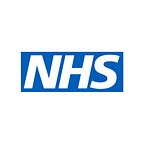Biomedical Science Day
For Biomedical Science Day on 24 June 2021, Etain Clarke, Principal Quality Manager in Blood Transfusion at Health Services Laboratories explains what her day job involves.
I oversee the laboratory quality framework in blood transfusion and support Biomedical scientists and laboratory staff in delivering a pathology service, ensuring this meets national and international standards of quality.
My specialty is in transfusion science. We match donated blood, platelets and plasma to patients who are undergoing surgery or who need blood transfusion while on treatments for cancer or blood disorders. Like all biomedical sciences, transfusion science is a role that requires attention to detail and great scientific knowledge.
When I discuss what I do with family and friends I often describe Biomedical scientists as a key part of the team that are behind the result your doctor or clinician provides. Tissues, blood, and fluid samples are handled with care and attention by highly trained scientists. This year many biomedical scientists have been busy implementing Covid-19 testing pathways, alongside the work and pathology testing we carry out daily.
Biomedical scientists are front-line workers, but not always front-facing. While we don’t always meet patients, biomedical science and the work we do in the laboratory is interwoven with the patient journey.
In practice this might look like biomedical scientists and laboratory staff receiving those blood samples that were taken at the local phlebotomy clinic, testing them in the laboratory and then providing results to the GP or healthcare professional, or supporting transplantation teams with blood components and test results in the hospital environment.
Why I got into Biomedical science
We use words like “investigation” a lot in the laboratory, and there is a large element of analytical and critical thinking required in biomedical science. Questions like why do we test? how do we test? what does the test mean? have always been interesting to me. I still ask them every day — I like to know how things work.
When I was in school studying science, I enjoyed physics, chemistry, and biology. I read science in university, and at the time the only career options I knew of in science, were to seek to:
- transfer to medicine or pharmacy — if you met the entry criteria
- move into scientific research
- or teach
I did not want to pursue any of these career paths individually but wanted an element of all three in my career. I wanted to understand how cells and organs function in the human body, and how to test and determine how well they function — life sciences and pathology really.
“I get to work closely and collaboratively with clinical teams, keep up to date with latest scientific research, and have the privilege of teaching and mentoring the next generation of biomedical scientists”
I discovered biomedical science by chance during a conversation with a friend who was undertaking training, so I made inquiries with the Institute of Biomedical Science (IBMS) on how to become qualified. I am so glad I made the call. I get to work closely and collaboratively with clinical teams, keep up to date with latest scientific research, and have the privilege of teaching and mentoring the next generation of biomedical scientists as well as educating other healthcare professionals about the clinical benefits and potential dangers of blood transfusion.
My advice to anyone looking for a career in a science-based role in the NHS
I recommend online resources such as www.healthcareers.nhs.uk as a starting point for those who are looking for a science-based career in the NHS.
If you want to dip your toes into biomedical science, there are resources available online and a large community of Biomedical scientists on social media, promoting and providing information for those who are interested in the field. The IBMS website provides clear guidance on routes to qualification.
You need an IBMS accredited/approved degree, and to train in approved laboratories. These laboratories will have a training and support structure to develop and educate you through your biomedical science registration route and beyond. You are required to be registered with the Health and Care Professionals Council.
Biomedical science is mainly hospital based and there is shift and weekend work, which is reflective of the 24/7 service provided by the NHS. To support the scientific knowledge and laboratory testing we do, we also develop other key skills, including time management, attention to detail and good communication. These skills are transferrable, and as a result, the career pathway for a biomedical scientist is varied and full of opportunity.
For example:
· Biomedical scientists can now undertake higher specialist scientist training supported by Doctoral level awards, and become Consultant Clinical Scientists
· Biomedical scientists can diversify into areas such as quality, governance, risk management and regulatory affairs.
· Biomedical scientists can develop and hone leadership and management skills.
· Biomedical scientists can move into academia.
· Biomedical scientists support research and development and often publish their findings.
Biomedical scientists need to continuously develop and update knowledge. This makes perfect sense; science, medicine and healthcare are continuously developing. I am looking forward to what is coming next for biomedical science and its role in healthcare as we move to a more digital age.
Follow Etaine at @ClarkeEtain on Twitter.
Health Services Laboratories is a partnership between The Doctors Laboratory, Royal Free London NHS Foundation Trust and University College London NHS Foundation Trust.
